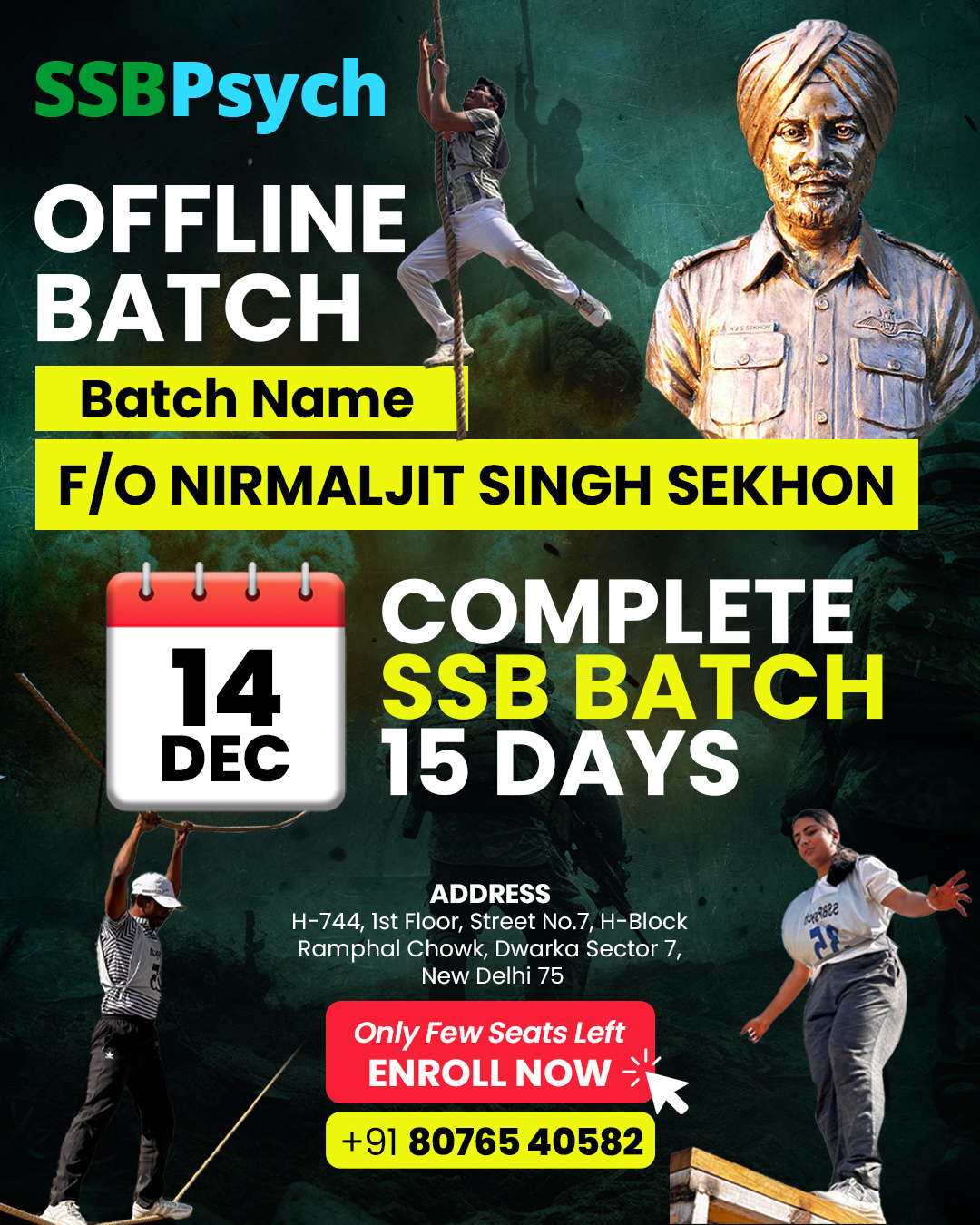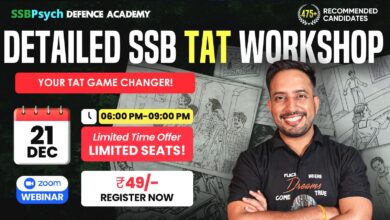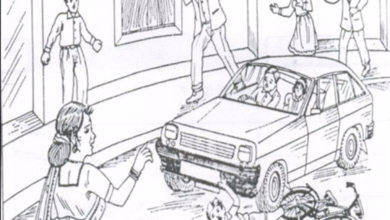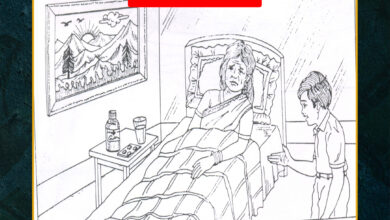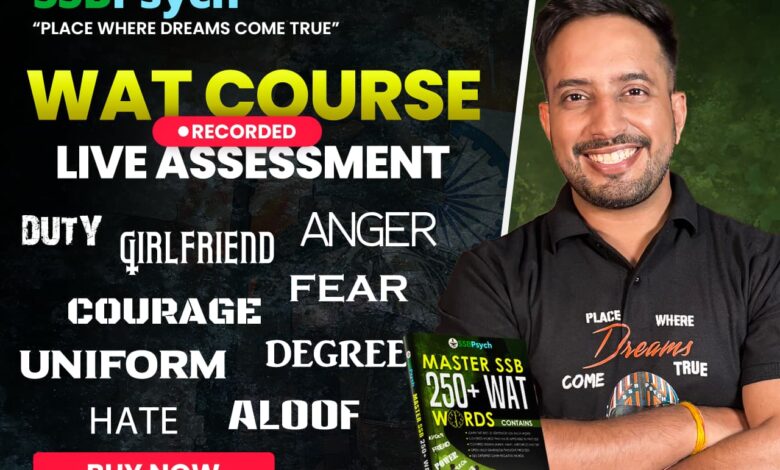
Word Association Test (WAT) in SSB – The Ultimate Guide for Aspirants
Introduction
Among the various psychological assessments at the Services Selection Board (SSB) Interview, the Word Association Test (WAT) holds a special place. Unlike academic exams that test knowledge, WAT dives into your subconscious mind to reveal your real personality.
It is not about how fast you can write or how fancy your vocabulary is — it’s about how you think, how you perceive life, and whether you possess the Officer Like Qualities (OLQs) required to lead men in uniform.
What Exactly is WAT in SSB?
The Word Association Test is part of the Psychology Test Series at SSB. Here’s how it works:
- You will be shown 60 words one by one on a screen.
- Each word stays visible for 15 seconds.
- Within that time, you must write down the first thought or sentence that comes to your mind.
- The entire test lasts for about 15 minutes.
The words may be neutral (book, rain, journey), positive (victory, courage, leader), or even negative (failure, death, fear). Your response reveals your natural attitude and outlook.
Purpose of WAT – Why Psychologists Use It
The Armed Forces don’t just want physically strong candidates; they want mentally resilient leaders. WAT helps assess:
- Attitude: Do you think positively or negatively?
- Value System: Are you honest, disciplined, and responsible?
- Leadership Potential: Do you show initiative, responsibility, and team spirit?
- Decision-Making: Are your thoughts clear and practical under pressure?
- Emotional Stability: How do you react to challenges, failures, and crises?
Every response you give in WAT is like a window into your real personality.
WAT Examples with Good vs. Poor Responses
- Word: Failure
✅ Failure motivates me to improve.
❌ Failure is depressing. - Word: Leader
✅ Leader guides the team by example.
❌ Leader is powerful. - Word: Crisis
✅ Crisis brings out hidden strengths.
❌ Crisis is dangerous. - Word: Discipline
✅ Discipline builds character and efficiency.
❌ Discipline is strict.
How to Prepare for WAT in SSB
1. Train Your Mind for Positivity
Every word — whether pleasant or harsh — can be tackled with an optimistic outlook. Example: Death → Death reminds us to live meaningfully.
2. Practice Regularly
Solve practice sets daily. Write responses for at least 20–30 words in 15 seconds each. This builds speed + natural flow.
3. Keep Responses Short & Meaningful
One simple sentence is enough. Avoid long, confusing lines.
4. Show OLQs (Officer Like Qualities)
Your answers should reflect qualities such as honesty, courage, responsibility, teamwork, and adaptability.
5. Avoid Memorized Sentences
Psychologists can easily identify fake or copied answers. Be genuine.
Enroll in Course : Click Here
Common Mistakes in WAT
- ❌ Writing dictionary definitions instead of real thoughts.
- ❌ Negative or pessimistic responses (Fear is dangerous).
- ❌ Overthinking and missing words due to lack of speed.
- ❌ Using unrealistic “ideal” answers that don’t reflect your real self.
Quick Pro Tips from Experts
- Always write naturally, not what you think “they want.”
- Focus on clarity and positivity, not on English grammar.
- Even with tough words, find a constructive angle. Example: Problem → Every problem has a solution.
- Build a habit of positive thinking in daily life; WAT will then flow naturally.

Enroll in Course : Click Here
FAQs on WAT in SSB
Q1. How many words are there in WAT?
👉 60 words are shown one after another.
Q2. How much time do we get for each word?
👉 15 seconds per word.
Q3. Is English grammar important in WAT?
👉 No. Psychologists look at your thoughts, not your grammar.
Q4. How can I improve my WAT performance?
👉 Practice daily, stay positive, and reflect OLQs in your responses.
Q5. What qualities do assessors look for in WAT?
👉 Positivity, clarity of thought, maturity, responsibility, and leadership.
Conclusion
The Word Association Test (WAT) is not a language test; it’s a personality mirror. Each word is an opportunity to showcase your resilience, optimism, and leadership potential. With consistent practice and the right mindset, you can turn WAT into your strongest area in the SSB Interview.
Remember: Your words reflect your thoughts, and your thoughts shape your destiny.


